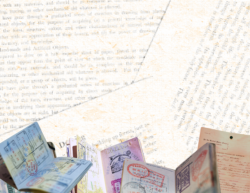Last week Maryland jumped into the spotlight of the gay marriage debate when a Baltimore judge ruled that a ban on same-sex marriage ran afoul of the state’s constitution.
The ruling was mostly symbolic, as the judge’s order has been stayed pending appeal. However, with mayoral elections due this year in both Maryland and the District of Columbia the debate will remain lively.
In our own city, the same-sex marriage debate offers some insight into a division in the Democratic Party. D.C. is certainly a Democratic stronghold; John Kerry took nearly 90% of the popular vote in 2004, according to the D.C. Board of Elections. However, the issue has caused quite a stir among some African-American religious leaders.
Notable among these is the Rev. Willie Wilson of the Union Temple Baptist Church, who made headlines last year for inflammatory remarks regarding gays and lesbians.
So far, three of the five major Democratic candidates for D.C. mayor have openly supported same-sex civil unions. Adrian Fenty (D-Ward 4), Marie Johns, a former telecommunications executive, and lobbyist Michael Brown have said they support adding D.C. to the list of places where civil unions are legal. However, two prominent candidates, current D.C. Council Chair Linda Cropp and Vincent Orange (Ward 5) have voiced opposition.
The issue is a tough one, as the candidates try to court both the liberal upper-class electorate and the larger group of religious and conservative African-American voters.
Regardless of current mayoral candidates’ stances, some members of the D.C. Council want to see civil union legislation passed as soon as possible. Councilman Phil Mendelson (D-At Large) has sponsored a bill that would give legal rights such as power of attorney and visitation privileges to same-sex couples.
In the end, though, discussion of gay marriage or civil unions in the District is rendered moot by Congress’s veto power over D.C. laws.
Sen. Sam Brownback (R-Kan.) has said that any effort to legalize gay marriage in D.C. would be met with bipartisan resistance. When domestic partnership legislation was first introduced, Congress blocked it.
This factor has led Councilmember Jim Graham (D-Ward 1) to take a wait-and-see attitude when it comes to the 2006 Congressional elections. Graham, who is considering introducing a bill legalizing same-sex marriage in D.C., said “the mean-spirited majority in Congress” could potentially stop it.
Graham pointed out that if the decision in Maryland is upheld, the issue will land right at the city’s doorstep. Graham urged Mayor Anthony Williams (D) to make an official decision on whether out-of-state civil unions or same-sex marriages would be recognized in the District.
If anything, the esoteric gay marriage debate should make D.C.’s lack of self-governance sting a bit. However, D.C. finds itself in a unique position. If the D.C. Council passes a same-sex marriage bill, it will go before Congress for a 30-day period.
Both houses of Congress and the President would have to approve a veto. While the District may not have representation in Congress, it has the ability to shape the agenda. “We should create a national debate on the issue,” Graham said, “the likes of which have not been seen.”




